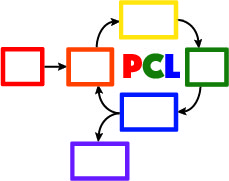On-line workshops
Experiment Introduction workshop (geared for online delivery): January 12, 2022
If you are interested in this workshop fill out this form: POGIL-PCL Workshop January 12 2022
There will be a zoom introductory POGIL-PCL workshop January 12, 7-9 pm eastern time. Participants will conduct an experiment, "Can we make stew with these beans?", and we will also have time to discuss implementation and facilitation. Students practice making predictions and experimental design. Data modeling is introduced, and we will introduce using Python (in a Jupyter notebook) to carry out the data modeling. We especially encourage physical chemistry laboratory instructors who have little to no experience with POGIL-PCL experiments to attend. Please complete this form: POGIL-PCL Workshop January 12 2022
Testing other experiments:
We are planning at least two more on-line workshops for January and February of 2022. These workshops will be for new and experience POGIL-PCL users to learn about experiments that are either complete or nearly complete. Stop back in the before you break for the holidays to find out more.
Past Workshops
Experiment Development workshop : July 29, 2020
If you are interested in this workshop fill out this form: POGIL-PCL Workshop July 29 2020
The POGIL-PCL team will host a Zoom workshop July 29, 2020, from 10 am to 4 pm EDT (with periodic breaks). Participants will work in pre-set teams to develop, test (virtual), review, or complete a variety of POGIL-PCL experiments. Experiments include "How do electrons move in a solid", "What is the structure of a polymer in solution," "Water, water everywhere--is it all the same (molecular dynamics)," "How is the melting point of a molecular compound affected by its structure," "What environmental factors effect an NMR spectrum," and "How can we measure a reaction enthalpy without going into the laboratory," among others.
Our goals include completing these experiments, providing participants with the opportunity to practice these experiments with other instructors, and continue to build community by coming together to discuss teaching physical chemistry. All experiments could be carried out in in-person, hybrid or online courses. Some experiments are computational, and all have data generated previously, data gathered from literature, or data generated using freely available computational software.
To participate fully, you should have a computer with audio and video capability as well as access to Google drive.
The view of one of our Zoom workshops from 2018.
Watch this space for information about other upcoming on-line workshops.
If you are interested in attending or workshop, please contact us here.

